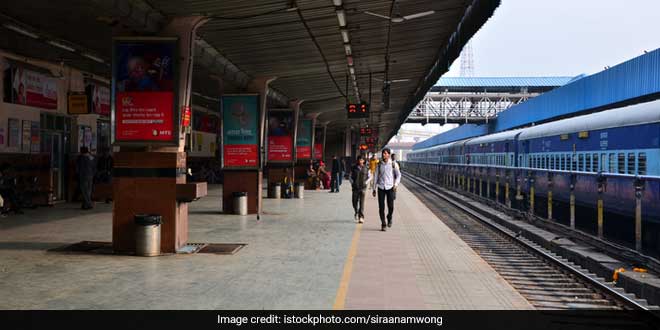New Delhi: With a mission to improve the standards of sanitation and hygiene in trains and enhance the passenger experience, Indian Railways started a special cleanliness campaign in 2015 under Swachh Bharat Mission called ‘Swachh Rail, Swachh Bharat’. Under this campaign, the Railways has implemented multiple measures to make itself more sustainable like installing bio-toilets, conducting mechanised cleaning of stations and tracks, and providing separate dustbins for dry and wet waste. The ‘swachh’ efforts of the Indian Railways were acknowledged by the Economic Survey 2019-20. It said,
Every endeavour is made to keep the stations and coaches in properly maintained and clean condition. Regular intensive campaigns and drives have been organised by the Indian Railways.
Also Read: Indian Railways Brings Back Kulhads, Replaces Plastic With Clay Products
According to the survey, when the campaign was started, only 19,746 bio-toilets were installed, while now this number has increased to more than two lakh (2,26,000). The ‘Bio-Toilet project’ of Indian Railways entails bio-toilets fitted underneath the lavatories and when human waste is discharged into these toilets, it is acted upon by bacteria that convert human waste into water and bio-gas. The gases escape into the atmosphere and wastewater is discharged onto the track. Human waste, therefore, is not discharged on the railway tracks, thus improving cleanliness and hygiene at platforms.
भारतीय रेल पर्यावरण को साफ सुथरा रखने में महत्वपूर्ण योगदान दे रही है । इसके तहत ट्रेनों में बायोटॉयलेट लग रहे हैं जिससे ट्रेन और पटरी को साफ रखने में सहूलियत होगी।अब तक कुल 60906 डिब्बों में 2,18,515 बायो टायलेट लगाए जा चुके हैं । बाक़ी डिब्बों में भी शीघ्रता से लगाए जा रहे है। pic.twitter.com/tKgKj12kQ4
— Ministry of Railways (@RailMinIndia) August 24, 2019
The survey further enumerates that 940 stations of Indian Railways have been equipped with mechanised cleaning and rag picking is being done in 1,300 stations. The survey also shows that 215 railway stations across the country have got plastic bottle crushing machine and all major stations have been provided with separate dustbins for dumping was separately into dry and wet waste.
However, it should be noted that there are over 8,700 stations of Indian Railway across the country and so there is still a long way to go for India Railways to become completely ‘swachh’.
Recently, the East Coast wing of the Indian Railways, commissioned a waste-to-energy plant in Bhubaneswar with a capacity to dispose of 500 kilogram of waste, including plastic and e-waste by converting these into fuel.
Taking forward the aforementioned measures, Indian Railways has announced setting up of a large solar power plant alongside the railway tracks in the budget for the financial year 2020-21 to improve the country’s solar power building capacity and reduce carbon emissions caused by fossil fuel.
Solar Photo Voltaic Cover Over Platform(COP) shed has been provided at PF 4 & 5 of Vijayawada railway station. No use of galvanised sheets
Capacity: 65 kw (198 solar panels)
Power Generation: Approx 1.06 lakhs units -17% power need of Station
Annual Savings: Rs.8.1 lakhs pic.twitter.com/BR9hHuw299
— Ministry of Railways (@RailMinIndia) January 31, 2020
[corona_data_new]Union Budget 2020-21 : Indian Railwayshttps://t.co/OnXpN0KWD6 pic.twitter.com/ybnDclnyDu
— Ministry of Railways (@RailMinIndia) February 1, 2020


























